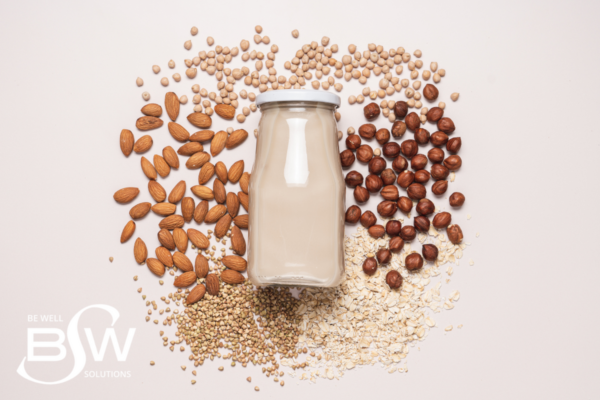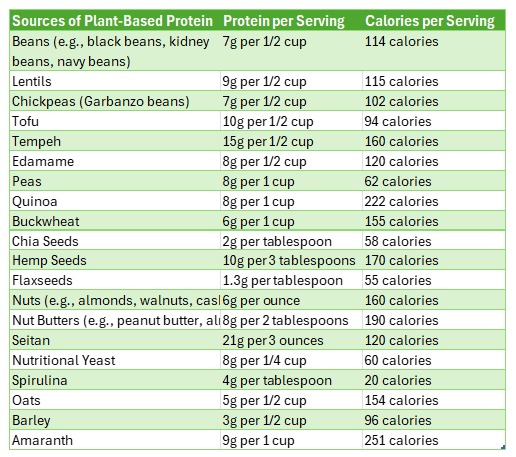Protein is a vital nutrient that is essential for life. Alongside carbohydrates and fats, it is one of the essential nutrients in our diet. This article underscores how the sources of these nutrients can significantly impact our health risks and other factors. While we have discussed healthy sources of carbohydrates and fats in other essays, today we focus on different alternative sources of protein, specifically plant-based protein.
What is Protein
Protein is composed of building blocks called amino acids. Amino acids are combined to form the proteins which are essential for building and repairing tissues, producing enzymes and hormones, and sustaining other bodily functions. Some amino acids must come from our diet and that’s why there are minimum daily amounts of protein that are recommended for good health.
Daily Protein Requirements
Protein requirements vary, based on physical factors such as age, gender, activity level and size. Protein deficiency is rare in the American diet due to the abundance of plant and animal-based protein sources. For adults weighing between 140 and 200 pounds, the Harvard School of Public Health recommends between 50 and 70 grams of daily protein. Most experts recommend spreading out protein intake throughout the day.
The “Protein Package”
Not all protein sources are the same. As mentioned above, both plant and animal foods can both be sources of protein. These foods also contain other things, such as saturated and unsaturated fats, dietary fiber and sodium. This is what dietitians and other food scientists refer to as the “Protein Package”.
The differences in the protein package can be substantial. For example, plant-based proteins such as beans, lentils, and quinoa offer protein plus beneficial fats, fiber, vitamins, and minerals. Salmon and other fatty fish offer protein with beneficial omega-3 fats. These nutrients can lower cholesterol, improve digestion, and enhance overall health. In contrast, animal proteins often come with saturated fats, cholesterol and other components that appear to increase heart disease and cancer risk.
Benefits of Plant-Based Proteins
Plant-based proteins offer benefits that make them a compelling choice for many people. There are numerous studies that underscore the health benefits of plant-based diets and limiting meat in our diets. These findings indicate that diets rich in plant-based proteins lead to lower risk of heart disease, certain types of cancer, improved overall longevity, better digestion and reduced inflammation. More information on the benefits of plant-based protein can be found from the American Heart Association and the American Institute for Cancer Research.
Beyond the health advantages, plant-based proteins are environmentally friendly, using fewer resources and producing less greenhouse gas. They appeal to those concerned with animal welfare by reducing the reliance on factory farming. Finally, plant proteins are often more affordable than meat.
Adding Plant-Based Proteins to Your Diet
Incorporating plant-based proteins into your diet can be simple and enjoyable.
There are numerous sources for new recipes; try searching for vegetarian and vegan dishes to find meals that appeal to your taste buds. Check out these 41 Easy Plant-Based Recipes from Forks over Knives.
Start small by swapping one meat-based meal with a plant-based option, such as a hearty lentil soup or a refreshing chickpea salad.
Make smart snacking choices by opting for plant-based options like hummus, roasted chickpeas, or a handful of nuts. Educate yourself on the different types of plant-based proteins and their health benefits to guide your choices.
Take Action Today
Plant-based proteins are gaining popularity due to their health benefits, sustainability, and ethical considerations. By adding more healthier protein choices to your diet, you can support your health and the environment. Start small, experiment with recipes, and enjoy the journey of discovering new foods and flavors.
Continue Reading July 2024 Newsletter: The Science of Recovery: How to Optimize Your Rest Days


